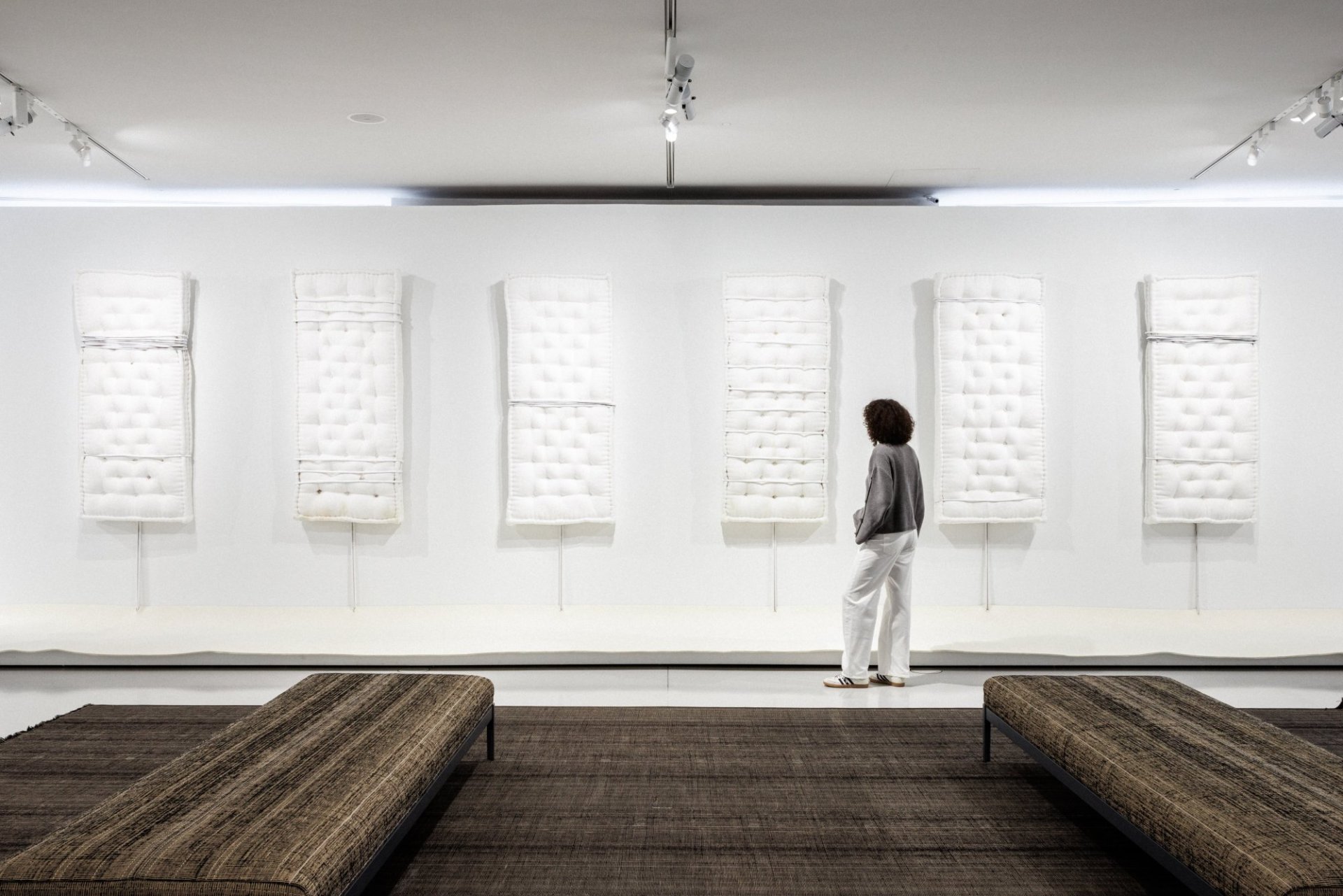
"I see art as a temple, a place where people go to meet with a sense of hope and desire" – Pier Paolo Calzolari
In Pier Paolo Calzolari’s work, words and spiritual allusions mingle with refrigeration units. The artist, currently on show at the Bourse de Commerce, explains his thoughts on art and his poetic visions in the following interview.
"Casa Ideale was a need, a dream".
Can you explain your installation Casa Ideale to us? What does this “ideal home” symbolise?
Casa Ideale was a need, a dream. The need to have a place structured around the desires and ideas I had at the time, but which could also host those of other people. I wanted to build this free space that was somewhat like a house, where my ideals could host my thoughts along with other people’s ideas.
Words are important to you. Can you talk about what poetry means to you?
I really love poetry, by other people mainly, but mine too. I believe that for a work of art to survive, it has to have an inner poetry, an inner life.
You often use ice in your works. Where did this come from?
When I was a child, living in Venice, I was hypnotised by its waterfront, the Riva degli Schiavoni. I used to look at the balconies made out of the very white Istrian stone that you see in Venice. And I was dazzled by the white of the sunlight reflecting off the lagoon, which was constantly changing. I very naively tried to replicate it with my paintbrushes, but I soon understood that this was impossible, that paint was inadequate. I eventually became very interested in white. I was looking for an autonomous white, one that formed all on its own, without any input from me. That’s when I began using ice, which has this absolute, untouched quality.
This piece includes machines that generate cold. In your opinion, is Arte Povera about technique instead of technology?
You can see works in my space that use refrigeration motors that are the same ones that power your refrigerators. The principle is very simple: the passage from a liquid to a gas provokes the cold. It’s a technique, but it’s not technology. I am instead interested in alchemy, in applying physics and math to reality.

Is there a certain idea of non-modernity in this simple principle of alchemy?
What is certain is that alchemy is the basis of science. It’s naive and empirical. The progress we are achieving in our current research will seem very simple 200 years from now. Today, some people fear artificial intelligence, but that makes me laugh. It is already being used to a highly effective degree, sometimes too much so.
Your works are not objects. Are they instead situations that one passes through?
What I want is for my space to act on people, through the objects. I see art as a temple, a place where people go to meet with a sense of hope and desire, to have a collective experience. And this passage leaves traces that are psychological and physical... traces of thoughts and desires that linger in the air. You can smell them, like a scent. That is my vision. It’s not a differentiation of the objects, rather a differentiation of people.
How would you define Arte Povera?
Arte Povera is a definition chosen by the critic and curator Germano Celant. But the idea of poverty is something else. It’s not about a material poverty. In my opinion, “poor” art only makes sense if you talk about Saint Francis of Assisi, a highly important philosopher who began to say that humans were not the centre of the world. For the first time, he denied humanity a certain status. He sought to analyse things through a horizontal vision of the world. In his vision, a leaf had rights, a smell, a life. We have to live with it.
This was not just my vision. Emilio Prini and other Arte Povera artists shared this vision. This “constellation” of artists, brought together by different political, cultural, and other issues, tried to construct a new vision of the world using a horizontal, poly-democratic perspective, and by combining the past, the present, and a certain view of the future.
Your works give the impression that time is not standing still. What do you think about this?
I do not have a progressive view of time because it's not progressive. I believe that time is a set of parallel conditions in which things float. We are all swimming in this “soup of time”. Obviously I don’t believe in watches; I don’t wear one. In fact, I don’t see time as working in a single direction.
The Arte Povera exhibition is open until 20 January 2025 at the Bourse de Commerce.